Home>diy>Building & Construction>What Does A Director Of Construction Do
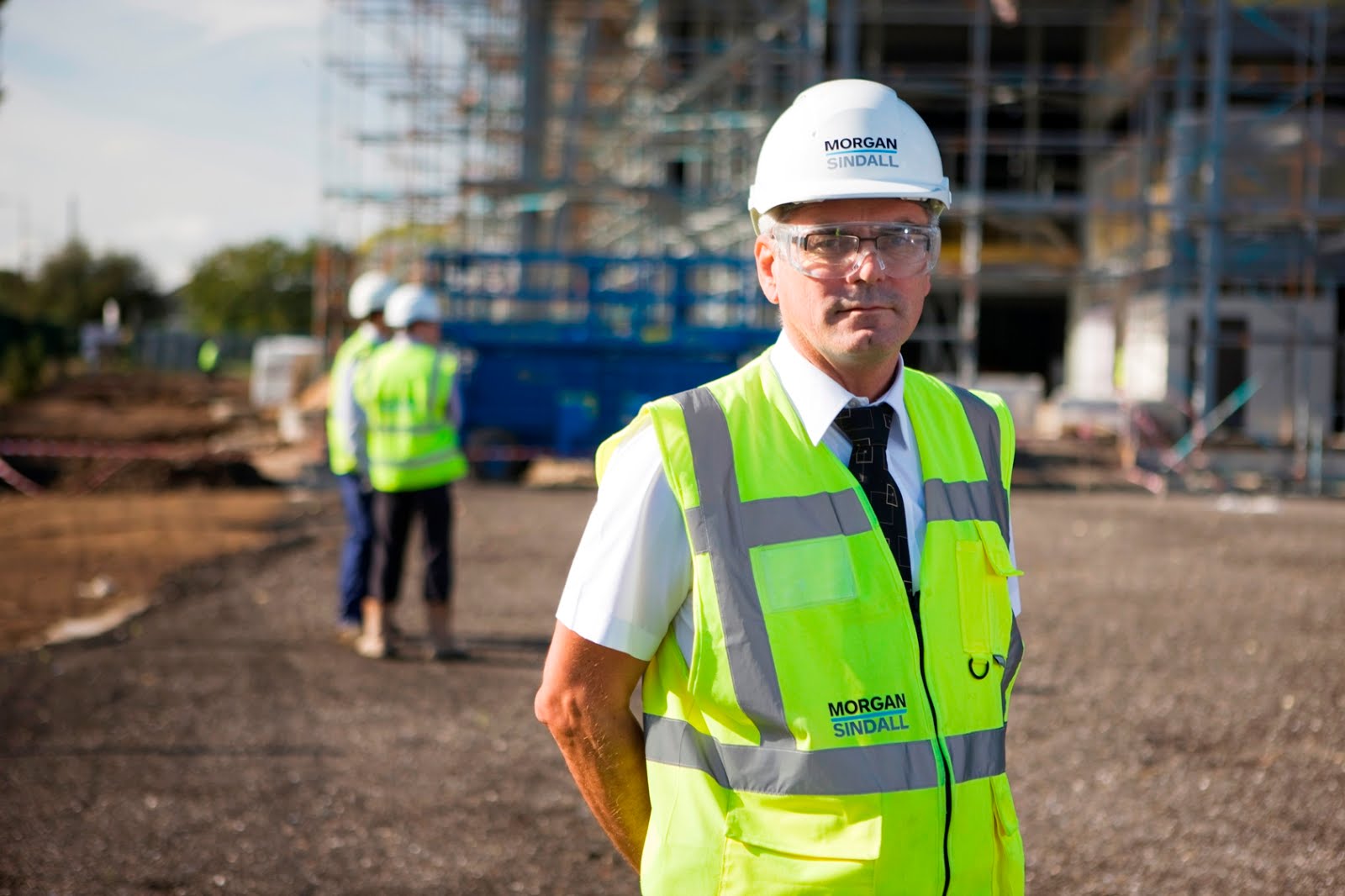

Building & Construction
What Does A Director Of Construction Do
Modified: January 6, 2024
Discover the role and responsibilities of a Director of Construction in building-construction projects. Explore job requirements and career prospects in this dynamic field.
(Many of the links in this article redirect to a specific reviewed product. Your purchase of these products through affiliate links helps to generate commission for Storables.com, at no extra cost. Learn more)
Introduction
Welcome to the world of construction! Building projects, whether it be residential houses, commercial complexes, or large-scale infrastructure developments, require intricate planning, coordination, and execution. And at the heart of it all is the Director of Construction, a crucial role that ensures the successful completion of construction projects.
A Director of Construction is a highly skilled and experienced professional who oversees all aspects of a construction project, from the initial planning stages to the final execution. They play a pivotal role in ensuring that projects are completed on time, within budget, and meet the highest quality standards.
In this article, we’ll delve into the responsibilities and duties of a Director of Construction and explore the key skills and competencies they bring to the table. So, let’s dive in and discover what it takes to be a successful Director of Construction!
Key Takeaways:
- The Director of Construction plays a pivotal role in ensuring the successful completion of construction projects by overseeing project strategy, financial management, team leadership, quality assurance, contract management, risk mitigation, and stakeholder engagement.
- Effective communication, stakeholder engagement, and regulatory compliance are essential components of the Director of Construction’s responsibilities, contributing to the successful and sustainable delivery of construction projects.
Read more: What Does A Developer Do In Construction
Role of a Director of Construction
The role of a Director of Construction is multifaceted and encompasses various aspects of project management, financial oversight, team leadership, and quality control. They act as the primary point of contact for all stakeholders involved in the construction project, including clients, architects, engineers, subcontractors, and regulatory bodies.
One of the key roles of a Director of Construction is to develop and execute a comprehensive construction strategy. They collaborate with architects and engineers to translate design plans into practical construction plans, considering factors such as budget, timelines, and available resources. They also ensure compliance with building codes and regulations to guarantee the safety and integrity of the structure.
Another important function of a Director of Construction is to oversee the financial aspects of the project. They develop and manage the project budget, monitor expenses, and implement cost control measures to ensure that the project stays within the allocated funds. They work closely with the finance and procurement teams to analyze and negotiate contracts with subcontractors and suppliers, aiming to secure the best possible deals while maintaining quality standards.
Furthermore, a Director of Construction is responsible for assembling and managing a skilled construction team. They hire and supervise project managers, site supervisors, and other construction professionals, providing guidance and support throughout the project. They foster a positive and collaborative work environment, promoting effective communication and teamwork to achieve project objectives.
Quality assurance and control are also integral components of a Director of Construction’s role. They establish and implement quality standards, conducting regular inspections and audits to ensure that construction activities adhere to these standards. They oversee testing and quality assurance procedures, working closely with professionals such as structural engineers and building inspectors to verify the safety and compliance of the structure.
Additionally, a Director of Construction plays a crucial role in managing contracts and negotiations. They review and negotiate contracts with subcontractors, suppliers, and other stakeholders, ensuring that terms and conditions are favorable and aligned with the project’s objectives. They also handle any disputes or conflicts that may arise throughout the construction process, employing negotiation and conflict resolution skills to find mutually beneficial resolutions.
Moreover, a Director of Construction is responsible for managing risks associated with the project. They identify potential risks, develop risk mitigation strategies, and implement appropriate measures to minimize their impact on the project timeline, budget, and quality. They stay updated on industry trends, regulations, and best practices to anticipate and address potential risks proactively.
Lastly, effective communication and stakeholder engagement are vital for a Director of Construction. They act as a liaison between clients, architects, engineers, and other project team members, facilitating clear and efficient communication channels. They provide regular updates on the project’s progress, address any concerns or issues raised by stakeholders, and ensure that everyone involved is informed and aligned throughout the construction process.
In summary, the role of a Director of Construction is pivotal in ensuring the successful completion of construction projects. They are responsible for project strategy, financial management, team leadership, quality assurance, contract management, risk mitigation, and stakeholder engagement. With their expertise and guidance, construction projects can be executed efficiently, meeting the highest standards of quality and delivering value to clients.
Responsibilities and Duties
A Director of Construction carries out a wide range of responsibilities and duties to ensure the smooth and successful completion of construction projects. Let’s explore some of the key responsibilities they typically handle:
- Developing and executing a comprehensive construction strategy, taking into account project objectives, client requirements, budget constraints, and timelines.
- Collaborating with architects, engineers, and other project stakeholders to translate design plans into practical construction plans, ensuring compliance with building codes and regulations.
- Overseeing the financial aspects of the project, including budget development, expense monitoring, and cost control measures.
- Analyzing and negotiating contracts with subcontractors, suppliers, and other stakeholders to secure favorable terms and conditions.
- Managing project schedules and timelines, coordinating construction activities, and ensuring that project milestones are achieved within the defined timeframes.
- Hiring, training, and supervising project managers, site supervisors, and other construction professionals, providing guidance and support throughout the project.
- Establishing and implementing quality standards, conducting regular inspections and audits to ensure adherence to these standards, and addressing any quality issues that arise.
- Identifying potential risks and developing risk mitigation strategies to minimize their impact on project objectives.
- Acting as a liaison between clients, architects, engineers, subcontractors, and other project team members, facilitating effective communication and addressing any concerns or issues raised.
- Ensuring compliance with safety regulations and industry best practices to create a safe work environment for the construction team.
- Keeping up-to-date with industry trends, regulations, and technological advancements to incorporate innovative practices into construction projects.
- Managing project documentation, including contracts, permits, and progress reports, and maintaining accurate records of project activities.
- Handling any disputes or conflicts that may arise during the construction process, employing negotiation and conflict resolution skills to find mutually beneficial solutions.
- Staying informed about sustainability practices and incorporating environmentally friendly strategies into construction processes.
- Monitoring and evaluating the performance of the construction team and implementing strategies to enhance productivity and efficiency.
These responsibilities and duties demonstrate the comprehensive nature of the role of a Director of Construction. By effectively managing these tasks, they ensure that construction projects are completed on time, within budget, and to the highest standards of quality.
Project Planning and Management
One of the core responsibilities of a Director of Construction is project planning and management. This involves developing a comprehensive plan for the construction project and overseeing its execution throughout the entire lifecycle. Let’s take a closer look at the key aspects of project planning and management:
1. Defining Project Objectives: The Director of Construction works closely with the client, architects, and engineers to clearly define the project objectives. This includes determining the scope of work, establishing the desired outcomes, and identifying any specific requirements or constraints.
2. Creating a Project Plan: Based on the project objectives, the Director of Construction develops a detailed project plan. This plan outlines the sequence of tasks, key milestones, resource allocation, and estimated timelines. It serves as a roadmap to guide the construction team throughout the project.
3. Allocating Resources: The Director of Construction is responsible for determining the resources required for the project, including materials, equipment, and human resources. They collaborate with the procurement and HR teams to ensure the timely availability of these resources.
4. Establishing Project Budget: The Director of Construction develops and manages the project budget, taking into account all costs associated with the construction, including labor, materials, equipment, and subcontractor fees. They closely monitor expenses throughout the project and implement cost control measures to keep the project within budget.
5. Creating a Project Schedule: The Director of Construction prepares a detailed project schedule, which includes timelines for each phase of the construction project. This schedule helps to track progress, identify any delays or bottlenecks, and make necessary adjustments to ensure the project stays on track.
6. Risk Assessment and Mitigation: The Director of Construction conducts a thorough risk assessment for the project, identifying potential risks and developing mitigation strategies. This involves anticipating and addressing challenges such as inclement weather, regulatory changes, or unforeseen construction obstacles.
7. Coordinating Construction Activities: The Director of Construction plays a critical role in coordinating various construction activities. They ensure that all tasks are properly sequenced, the necessary permits are obtained, and the construction team is working efficiently towards achieving project milestones.
8. Monitoring Progress and Quality: Throughout the construction project, the Director of Construction closely monitors progress and quality. They conduct regular inspections and audits to ensure that construction activities meet the defined quality standards. Any deviations or issues are promptly addressed to maintain the desired level of quality.
9. Managing Stakeholder Communication: The Director of Construction serves as the primary point of contact for all project stakeholders, including the client, architects, engineers, and subcontractors. They facilitate effective communication channels and provide regular updates on the project’s progress, addressing any concerns or queries raised by the stakeholders.
10. Adhering to Regulatory Requirements: The Director of Construction ensures compliance with all relevant building codes, regulations, and permits. They work closely with regulatory bodies, obtaining the necessary approvals and addressing any compliance issues that may arise during the construction process.
By effectively planning and managing the construction project, the Director of Construction ensures that it is executed in a structured and organized manner. Their expertise in project management helps to keep the construction team focused, the project on track, and ultimately leads to the successful completion of the project.
Budgeting and Cost Control
Budgeting and cost control are essential aspects of construction project management, and as a Director of Construction, it is your responsibility to develop and manage the project budget while implementing effective cost control measures. Let’s explore the key elements of budgeting and cost control in construction:
1. Developing the Project Budget: As a Director of Construction, you collaborate with the project team to determine the overall budget for the construction project. This includes estimating costs for materials, labor, equipment, subcontractors, permits, and any additional expenses that may arise during the project.
2. Allocating Resources: Once the budget is established, you allocate resources to different aspects of the project. This includes determining the quantity and quality of materials required, scheduling labor, and identifying necessary equipment and subcontractors. Efficient resource allocation helps ensure that the project stays within budget.
3. Monitoring Expenses: Throughout the construction project, you closely monitor expenses to ensure they align with the budgeted amounts. This involves tracking all costs, including labor, materials, equipment rental, and subcontractor fees. Regular monitoring allows you to identify any deviations from the budget and take timely corrective measures.
4. Implementing Cost Control Measures: As a Director of Construction, it is your responsibility to implement effective cost control measures to prevent unnecessary spending. This may involve negotiating favorable contracts with suppliers and subcontractors, exploring cost-saving alternatives for materials and equipment, and adopting efficient construction methods that minimize waste.
5. Value Engineering: Value engineering is a technique used to optimize the project’s value by evaluating every aspect of the construction process and identifying areas where costs can be reduced without compromising quality. As a Director of Construction, you facilitate value engineering exercises to find innovative solutions that maximize value while minimizing expenses.
6. Change Order Management: Change orders are modifications to the original scope of work, often resulting in additional costs. As a Director of Construction, you carefully assess change orders and their impact on the project budget. You work closely with the project team to determine the necessity and cost implications of change orders, ensuring that appropriate adjustments are made to the budget as required.
7. Regular Reporting: Effective cost control requires regular reporting on project expenses. As a Director of Construction, you provide timely and accurate cost reports to key stakeholders, including the client, project sponsors, and the project team. These reports outline the actual expenses incurred, compare them to the budgeted amounts, and highlight any significant variances.
8. Continuous Monitoring and Adjustments: Cost control is an ongoing process. As a Director of Construction, you continuously monitor project expenses, comparing them to the budget and analyzing the causes of any cost overruns or savings. Based on this analysis, you make adjustments to the budget as needed to keep the project on track financially.
9. Collaboration with Procurement: Collaboration with the procurement team is vital in budgeting and cost control. You work closely with procurement professionals to obtain competitive bids, negotiate contracts, and ensure that materials and services are procured within the established budget.
10. Continuous Improvement: As a Director of Construction, you strive for continuous improvement in budgeting and cost control practices. You stay updated with industry trends, technologies, and best practices to identify new opportunities for cost savings and improve the overall financial management of construction projects.
By effectively managing the project budget and implementing stringent cost control measures, you can ensure financial success in construction projects. This not only helps the project stay within budget but also maximizes profitability and client satisfaction.
Read more: What Does A Construction Manager Do
Construction Team Management
Effective construction team management is crucial for the successful execution of any construction project. As a Director of Construction, it is your responsibility to assemble and lead a skilled and cohesive construction team. Let’s explore the key elements of construction team management:
1. Hiring and Recruitment: As a Director of Construction, you are responsible for hiring and recruiting construction professionals who possess the necessary skills and experience for the project. This involves developing job descriptions, conducting interviews, and selecting the most suitable candidates for each position.
2. Training and Development: Once the team is assembled, you provide training and development opportunities to enhance their skills and knowledge. This includes organizing workshops, seminars, and on-the-job training to keep the team updated with the latest construction techniques, technologies, and safety practices.
3. Team Building: Building a strong and cohesive team is essential for project success. As a Director of Construction, you foster a positive work environment and promote teamwork among the construction team members. You encourage open communication, collaboration, and mutual support to create a unified team working towards a common goal.
4. Supervision and Oversight: You provide supervision and oversight to the construction team, ensuring that work is carried out in accordance with project plans and specifications. This involves conducting regular site inspections, reviewing progress, and addressing any issues or concerns that may arise.
5. Effective Communication: Clear and effective communication is essential for construction team management. You establish open lines of communication, facilitating regular meetings and updates with the team members. You ensure that everyone is well-informed about project objectives, milestones, and any changes that may occur throughout the construction process.
6. Delegation of Tasks: As a Director of Construction, you delegate tasks and responsibilities to the appropriate team members based on their skills and expertise. You ensure that each team member understands their roles and responsibilities and provide the necessary resources and support to execute their tasks effectively.
7. Performance Evaluation: You conduct regular performance evaluations of the construction team members. This allows you to assess their performance, provide feedback, and identify areas for improvement. Recognizing and rewarding outstanding performance helps to motivate and inspire the team.
8. Conflict Resolution: Construction projects can often be complex and challenging, leading to potential conflicts among team members. As a Director of Construction, you are responsible for resolving conflicts promptly and efficiently. You employ conflict resolution techniques to find mutually beneficial solutions and maintain a harmonious work environment.
9. Health and Safety: Ensuring a safe work environment is a top priority in construction team management. You enforce safety protocols and procedures, conduct regular safety inspections, and provide training on safety practices to minimize the risk of accidents or injuries on the construction site.
10. Continuous Improvement: Construction team management involves striving for continuous improvement. You actively seek opportunities to enhance team performance and efficiency. This includes implementing feedback mechanisms, identifying areas for improvement, and adopting industry best practices to maximize the productivity and effectiveness of the construction team.
By effectively managing the construction team, you foster a collaborative and motivated workforce that can efficiently execute the project. With strong leadership, effective communication, and a focus on continuous improvement, the construction team can overcome challenges and deliver successful construction projects.
A Director of Construction oversees all aspects of a construction project, from planning to completion. They manage budgets, schedules, and ensure compliance with regulations. Good communication and leadership skills are essential for success in this role.
Quality Assurance and Control
Quality assurance and control are paramount in the construction industry to ensure that construction projects meet the highest standards of quality and safety. As a Director of Construction, it is your responsibility to establish and maintain robust quality assurance and control practices throughout the project. Let’s explore the key elements of quality assurance and control:
1. Establishing Quality Standards: As a Director of Construction, you define the quality standards that need to be achieved for the project. These standards may include adherence to building codes, industry regulations, client specifications, and best practices. Clearly communicating the quality standards to the construction team is essential for ensuring consistent quality across all project phases.
2. Conducting Inspections and Audits: Regular inspections and audits are conducted to assess compliance with the established quality standards. This involves reviewing construction documents, examining workmanship, and inspecting materials, equipment, and installations. Inspections and audits are performed at various stages of the project to address any deviations from the quality standards promptly.
3. Testing and Quality Assurance Procedures: You develop and implement testing and quality assurance procedures to verify the quality and performance of construction materials and systems. This may include materials testing for strength and durability, as well as functional testing of systems such as electrical, plumbing, and HVAC. Regular quality assurance procedures help identify any deficiencies and ensure the project meets the desired standards.
4. Collaboration with Professionals: As a Director of Construction, you collaborate with professionals such as architects, engineers, and consultants to ensure quality throughout the project. These professionals provide expertise in their respective disciplines and help verify compliance with design specifications and quality standards through their review and approval process.
5. Documenting Quality Control Processes: You establish a comprehensive documentation system to track quality control processes, inspections, and test results. This documentation helps identify trends, track the resolution of deficiencies, and provide a historical record of the quality control efforts implemented on the project.
6. Corrective Actions: Inevitably, issues and deficiencies may arise during the construction process. As a Director of Construction, you take immediate corrective actions to address these issues. This involves working closely with the project team to identify the root causes of the problems and implement effective solutions to rectify them and prevent similar issues from recurring.
7. Continuous Monitoring and Improvement: Quality assurance and control are ongoing processes. You continuously monitor the project’s quality performance and seek opportunities for improvement. By actively seeking feedback, analyzing data, and incorporating lessons learned from previous projects, you implement measures to enhance the quality standards and practices on future projects.
8. Supplier and Subcontractor Quality Management: As a Director of Construction, you ensure that suppliers and subcontractors adhere to the established quality standards. This involves vetting and selecting reliable suppliers and enforcing quality control measures in their work processes. Regular communication and feedback help maintain a high level of quality throughout the supply chain.
9. Compliance with Regulations and Standards: Compliance with building codes, regulations, and industry standards is a critical aspect of quality assurance and control. You stay updated with the latest regulations and ensure that the project complies with all applicable codes, permits, and safety standards. This includes keeping track of any regulatory changes that may affect the project and implementing necessary adjustments to maintain compliance.
10. Client Satisfaction: Ultimately, quality assurance and control contribute to client satisfaction. By consistently delivering projects that meet or exceed quality expectations, you enhance the reputation of the construction company and foster long-term client relationships.
By prioritizing quality assurance and control, you ensure that construction projects are built safely, to the highest standards, and meet the expectations of all stakeholders involved.
Contract Management and Negotiation
Contract management and negotiation are fundamental aspects of the construction industry. As a Director of Construction, you are responsible for managing and negotiating contracts with subcontractors, suppliers, and other stakeholders involved in the project. Let’s delve into the key elements of contract management and negotiation:
1. Contract Development: As a Director of Construction, you collaborate with legal and procurement teams to develop comprehensive and well-defined contracts. These contracts outline the rights, obligations, and responsibilities of all parties involved in the project. They establish the terms and conditions, scope of work, project schedule, payment terms, and any other relevant contractual provisions.
2. Vendor Selection: In contract management, you are responsible for selecting reliable subcontractors, suppliers, and service providers. This involves conducting a thorough evaluation of vendors based on their expertise, track record, financial stability, and ability to meet project requirements. It is important to establish strong working relationships with vendors who can deliver quality goods and services within the agreed-upon timeframe.
3. Negotiation: Negotiation plays a vital role in contract management. As a Director of Construction, you negotiate favorable terms and conditions with subcontractors, suppliers, and other stakeholders to protect the interests of the project and the company. Negotiations may involve pricing, warranties, insurance requirements, and dispute resolution mechanisms.
4. Risk Analysis and Mitigation: During the contract negotiation process, careful attention is given to identifying and mitigating potential risks. You assess the risks associated with the contract, such as delays, cost overruns, and performance issues, and develop risk mitigation strategies. This may involve incorporating penalties for non-compliance or establishing clear protocols for handling disputes.
5. Contract Administration: Once contracts are in place, you oversee the contract administration process. This includes ensuring that all parties adhere to the contractual terms, monitoring vendor performance, and managing contract amendments or change orders. You also track contract deliverables, such as progress reports, certifications, and quality documentation, to ensure compliance and timely completion of project milestones.
6. Dispute Resolution: In the event of disputes or conflicts arising during the project, the Director of Construction plays a key role in resolving these issues. This may involve negotiating and mediating between parties to find mutually agreeable solutions. If resolution cannot be achieved through negotiation, legal remedies such as arbitration or litigation may be pursued.
7. Compliance Management: Contract management encompasses ensuring compliance with relevant laws, regulations, and contractual obligations. You stay updated with legal requirements and industry standards to ensure that the project complies with all applicable regulations.
8. Change Management: Changes are inevitable in construction projects, and contract management involves efficiently managing and documenting changes. This includes assessing the impact of change requests, negotiating necessary modifications to contracts, and updating contractual documents accordingly.
9. Record Keeping: Effective contract management requires rigorous record keeping. You maintain accurate and organized records of all contracts, amendments, correspondence, and other contractual documents. This ensures transparency, facilitates audits, and provides necessary documentation for future reference.
10. Building Strong Relationships: Effective contract management involves building strong relationships with subcontractors, suppliers, and other stakeholders. By maintaining open lines of communication and fostering positive working relationships, you facilitate collaboration and ensure that all parties are aligned with project goals and objectives.
By actively managing and negotiating contracts, you mitigate risks, protect the interests of the project and the company, and establish a solid foundation for successful project execution.
Risk Management
In the construction industry, risk management is an essential component of successful project execution. As a Director of Construction, one of your key responsibilities is to identify, assess, and mitigate potential risks that may impact the project’s timeline, budget, and overall success. Let’s explore the key elements of risk management in construction:
1. Risk Identification: The first step in risk management is identifying potential risks. This involves conducting a thorough analysis of the project, considering various factors such as project scope, site conditions, weather patterns, regulatory requirements, and potential challenges specific to the construction industry.
2. Risk Assessment: Once risks are identified, they need to be assessed to determine their potential impact on the project. This involves evaluating the likelihood of the risk occurring and the severity of its consequences. Risk assessment helps prioritize risks and allocate resources effectively to manage them.
3. Risk Mitigation Strategies: After assessing risks, you develop risk mitigation strategies to reduce the likelihood and impact of potential risks. This may involve implementing preventive measures, developing contingency plans, and establishing protocols and procedures to minimize or eliminate potential risks before they occur.
4. Regular Monitoring and Control: Risk management is an ongoing process that requires constant monitoring and control. You continually assess the project’s progress, identify new risks, and evaluate the effectiveness of existing mitigation strategies. By staying vigilant, you can take timely action to address emerging risks and make necessary adjustments to the project plan.
5. Collaboration with Project Team: Effective risk management requires collaboration with the project team, including architects, engineers, subcontractors, and other stakeholders. By involving all relevant parties in risk identification and mitigation discussions, you can tap into their expertise and collectively develop strategies to mitigate risks.
6. Contingency Planning and Budgeting: As part of risk management, you develop contingency plans and allocate contingency budgets. These plans and budgets act as a cushion to mitigate the financial impact of unforeseen risks or changes in the project scope. Contingency planning helps you be prepared and respond effectively to potential risks that may arise during construction.
7. Insurance and Legal Considerations: Mitigating risk also involves managing the project’s insurance coverage and maintaining compliance with legal requirements. You work closely with insurance providers to ensure sufficient coverage for potential risks. Additionally, you comply with relevant laws, regulations, and permits to minimize legal risks and avoid potential penalties.
8. Regular Communication and Reporting: Risk management requires consistent and effective communication with project stakeholders. You keep stakeholders informed about potential risks, mitigation strategies, and any changes to the risk landscape. Regular reporting on risk management efforts helps maintain transparency and enables timely decision-making.
9. Lessons Learned and Continuous Improvement: Risk management is an opportunity for continuous improvement. After the completion of a project, you analyze the effectiveness of risk mitigation strategies and evaluate the outcomes. Lessons learned from previous projects are incorporated into future risk management practices, enabling the organization to refine its approach and enhance risk mitigation efforts.
10. Environmental and Sustainability Risks: In today’s construction industry, managing environmental and sustainability risks is crucial. As a Director of Construction, you identify and address risks related to environmental impact, resource usage, waste management, and sustainable construction practices. By incorporating environmental considerations into risk management, you contribute to a more sustainable and responsible construction process.
By effectively managing risks, you minimize potential disruptions and ensure the successful execution of construction projects. Your proactive approach to risk management enhances project outcomes, fosters client satisfaction, and contributes to the overall growth and success of the construction company.
Read more: What Does A Flagger Do In Construction
Regulatory Compliance
Regulatory compliance is a critical aspect of the construction industry. As a Director of Construction, it is your responsibility to ensure that all construction projects comply with relevant laws, regulations, permits, and safety standards. Let’s explore the key elements of regulatory compliance in construction:
1. Building Codes and Regulations: Building codes and regulations set the standards for construction practices, safety, and structural integrity. It is essential to stay updated with local, regional, and national building codes, ensuring that the project design and construction align with these requirements. Compliance with building codes helps protect the safety of the occupants and ensures the longevity of the structure.
2. Permit Acquisition: Before commencing construction, you must obtain the necessary permits and approvals from regulatory authorities. This includes permits related to zoning, environmental impact, health and safety, electrical work, plumbing, and other applicable areas. It is your responsibility to manage the permit acquisition process, ensuring that all required permits are obtained in a timely manner.
3. Environmental Compliance: Construction projects have environmental implications, and it is crucial to comply with environmental regulations. This includes proper management of waste, adherence to guidelines for erosion and sediment control, protection of natural habitats, and compliance with regulations related to hazardous materials and pollution prevention. By incorporating environmental considerations into construction practices, you contribute to sustainable and responsible project execution.
4. Occupational Health and Safety: Construction sites can be hazardous environments, and compliance with occupational health and safety regulations is paramount. You are responsible for implementing safety protocols, providing proper safety training to the workforce, and ensuring that all personnel and subcontractors adhere to safety guidelines. Regular safety inspections, hazard identification, and incident reporting are crucial for maintaining a safe work environment.
5. Labor Laws and Employment Regulations: Construction projects involve an extensive workforce, and compliance with labor laws and employment regulations is essential. This includes responsible hiring practices, adherence to wage and hour laws, promotion of equal opportunity and diversity, and compliance with health and safety regulations specific to the workforce. Compliance with labor laws helps protect the rights and well-being of construction workers.
6. Contractual Compliance: Regulatory compliance also extends to contractual obligations. As a Director of Construction, you ensure that all parties involved in the project, including subcontractors and suppliers, comply with the terms and conditions outlined in the contracts. This includes meeting project specifications, delivering work within the agreed-upon timeframe, and maintaining necessary insurance coverage.
7. Regular Inspections and Audits: Compliance with regulatory requirements involves conducting regular inspections and audits to ensure ongoing adherence to applicable laws and regulations. This can include inspections by local authorities, as well as internal audits to verify compliance within the construction processes. Regular inspections help identify any non-compliance issues and allow for timely corrective actions.
8. Record Keeping and Documentation: Effective compliance requires comprehensive record keeping and documentation. You maintain accurate and organized records of all permits, approvals, inspections, safety training, incident reports, and other documentation related to regulatory compliance. Complete and well-documented records demonstrate compliance efforts and facilitate audits or inquiries from regulatory bodies.
9. Continuous Education and Training: Staying updated with the latest regulations, codes, and industry best practices is essential. You invest in ongoing education and training for yourself and the construction team to ensure a thorough understanding of regulatory compliance requirements. This allows you to proactively address any changes or updates in regulations and implement necessary adjustments to ensure continued compliance.
10. Collaboration with Regulatory Authorities: Building and maintaining positive relationships with regulatory authorities is crucial. You establish open lines of communication and facilitate regular dialogue with local building departments, environmental agencies, and other regulatory bodies. This collaboration ensures a proactive approach to regulatory compliance and enables timely resolution of any compliance-related issues or concerns.
By prioritizing regulatory compliance, you ensure the legality, safety, and ethical execution of construction projects. By complying with applicable laws and regulations, you protect the interests of all stakeholders, safeguard the environment, and contribute to an industry that is built on transparency, integrity, and responsible practices.
Communication and Stakeholder Engagement
Effective communication and stakeholder engagement are crucial aspects of successful construction projects. As a Director of Construction, it is your responsibility to establish clear and efficient communication channels and ensure that all project stakeholders are engaged and have a voice throughout the construction process. Let’s explore the key elements of communication and stakeholder engagement:
1. Stakeholder Identification: Identifying project stakeholders is the first step in effective communication and engagement. This includes identifying the client, project sponsors, architects, engineers, subcontractors, local authorities, community members, and other relevant parties who have an interest or influence in the project. Understanding the different roles and expectations of these stakeholders is essential.
2. Open and Transparent Communication: Establishing open and transparent communication is vital for all stakeholders involved in the project. You ensure that project objectives, timelines, progress updates, and any changes or challenges are communicated in a timely manner. Open communication builds trust, minimizes misunderstandings, and keeps all stakeholders informed and aligned.
3. Stakeholder Needs and Expectations: As a Director of Construction, you actively engage with stakeholders to understand their needs, expectations, and concerns. This involves conducting regular meetings, workshops, and surveys to gather feedback and ensure that their perspectives are considered in decision-making processes.
4. Effective Project Reporting: Regular project reporting keeps stakeholders informed about the project’s progress and highlights key milestones, issues, and risks. You prepare comprehensive progress reports that provide a clear overview of the project’s status, financials, schedule, and any relevant updates. These reports are tailored to the needs and preferences of different stakeholders.
5. Collaboration and Teamwork: Collaboration and teamwork are essential for successful project execution. As a Director of Construction, you foster a collaborative work environment where all team members and stakeholders can openly communicate and work together towards common goals. This includes encouraging cross-functional collaboration and promoting effective problem-solving and decision-making processes.
6. Conflict Resolution: Construction projects may involve conflicts or disagreements among stakeholders. As a Director of Construction, you employ conflict resolution techniques to address conflicts in a fair and timely manner. This may involve facilitating mediation sessions, encouraging open dialogue, and finding mutually agreeable solutions that align with project objectives.
7. Engaging the Local Community: Engaging with the local community is essential for construction projects that have an impact on the surrounding area. You establish communication channels to address any concerns or inquiries from the community and keep them informed about the project’s progress. This engagement fosters goodwill, enhances community relationships, and minimizes potential conflicts.
8. Technology and Digital Tools: Utilizing technology and digital tools can greatly enhance communication and stakeholder engagement. You leverage project management software, collaboration platforms, and other digital tools to streamline communication, share project updates, and facilitate real-time collaboration among stakeholders located in different locations.
9. Tailored Communication Strategies: Each stakeholder has unique communication preferences and needs. As a Director of Construction, you tailor communication strategies to accommodate these differences. This may involve varying communication methods such as email, meetings, newsletters, or visual presentations to ensure that information is delivered effectively to each stakeholder group.
10. Continuous Feedback and Improvement: Stakeholder engagement is an ongoing process that requires continuous feedback and improvement. You actively seek feedback from stakeholders, encouraging them to share their suggestions, concerns, and ideas. This feedback loop allows for continuous improvement and adjustment of communication strategies to better meet the needs of stakeholders.
By prioritizing effective communication and stakeholder engagement, you foster collaboration, build trust, and promote a positive project environment. Engaging stakeholders throughout the construction process ensures that their perspectives are considered, minimizes conflicts, and contributes to the successful and sustainable delivery of construction projects.
Conclusion
Being a Director of Construction is a challenging but rewarding role that requires a deep understanding of the building construction industry and a diverse skill set. Throughout this article, we have explored the various responsibilities and duties of a Director of Construction, ranging from project planning and management to budgeting, team management, quality control, contract management, risk mitigation, regulatory compliance, and stakeholder engagement.
A successful Director of Construction must possess strong leadership skills, excellent communication abilities, and the ability to manage multiple tasks and stakeholders simultaneously. They are responsible for developing and executing comprehensive construction strategies, managing budgets, and allocating resources efficiently. They also oversee the construction team, ensuring collaboration, effective communication, and adherence to quality standards and safety regulations throughout the project.
Furthermore, a Director of Construction plays a pivotal role in negotiating contracts, managing risks, and ensuring regulatory compliance. They engage with project stakeholders, including clients, architects, engineers, subcontractors, and local communities, maintaining open lines of communication, and addressing concerns and expectations that arise throughout the construction process.
By effectively fulfilling these responsibilities, a Director of Construction contributes to the successful completion of construction projects on time, within budget, and to the highest standards of quality. Their expertise and leadership help navigate the complexities of the construction industry, ensuring the smooth execution of projects and client satisfaction.
In conclusion, the role of a Director of Construction is indispensable in the world of building construction. With their deep knowledge, strategic thinking, and effective management skills, they play a vital role in turning architectural plans into tangible structures. From project planning and management to stakeholder engagement and regulatory compliance, the Director of Construction is the driving force behind successful construction projects.
So, if you aspire to be a Director of Construction or work with one, remember the immense value they bring to the industry. They are the architects of success and the guardians of quality in the dynamic and ever-evolving world of construction.
Frequently Asked Questions about What Does A Director Of Construction Do
Was this page helpful?
At Storables.com, we guarantee accurate and reliable information. Our content, validated by Expert Board Contributors, is crafted following stringent Editorial Policies. We're committed to providing you with well-researched, expert-backed insights for all your informational needs.
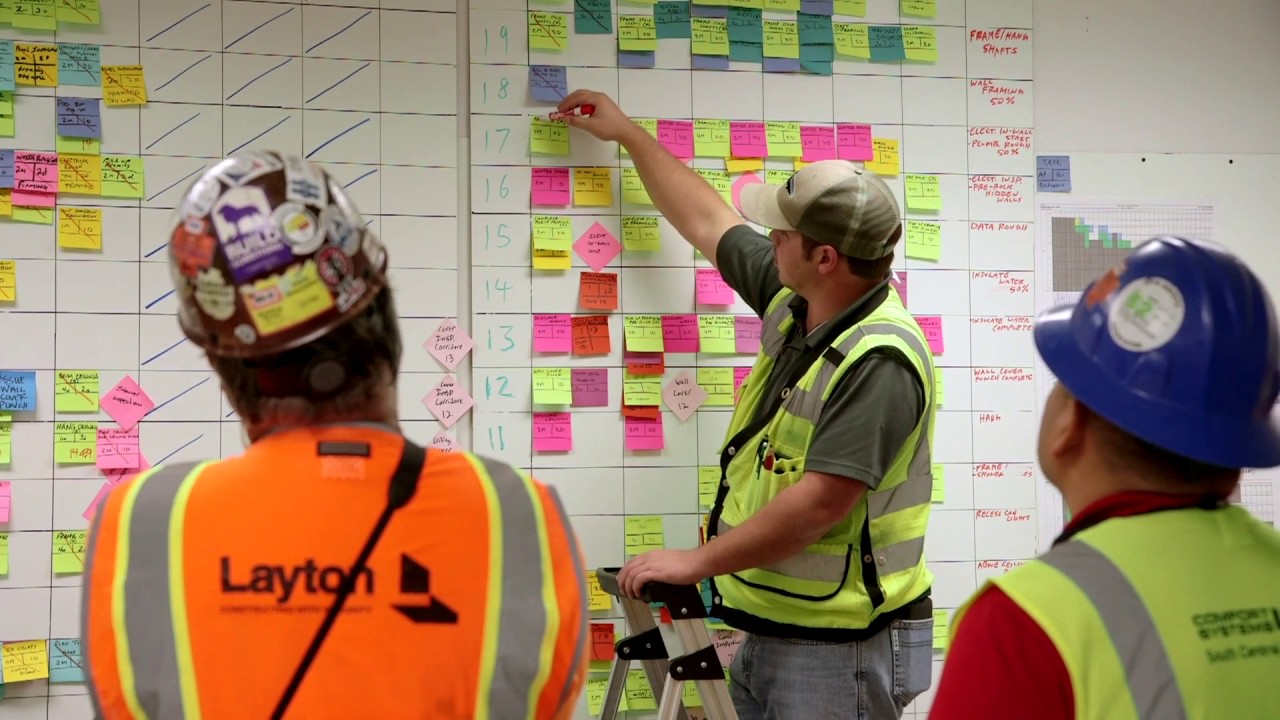





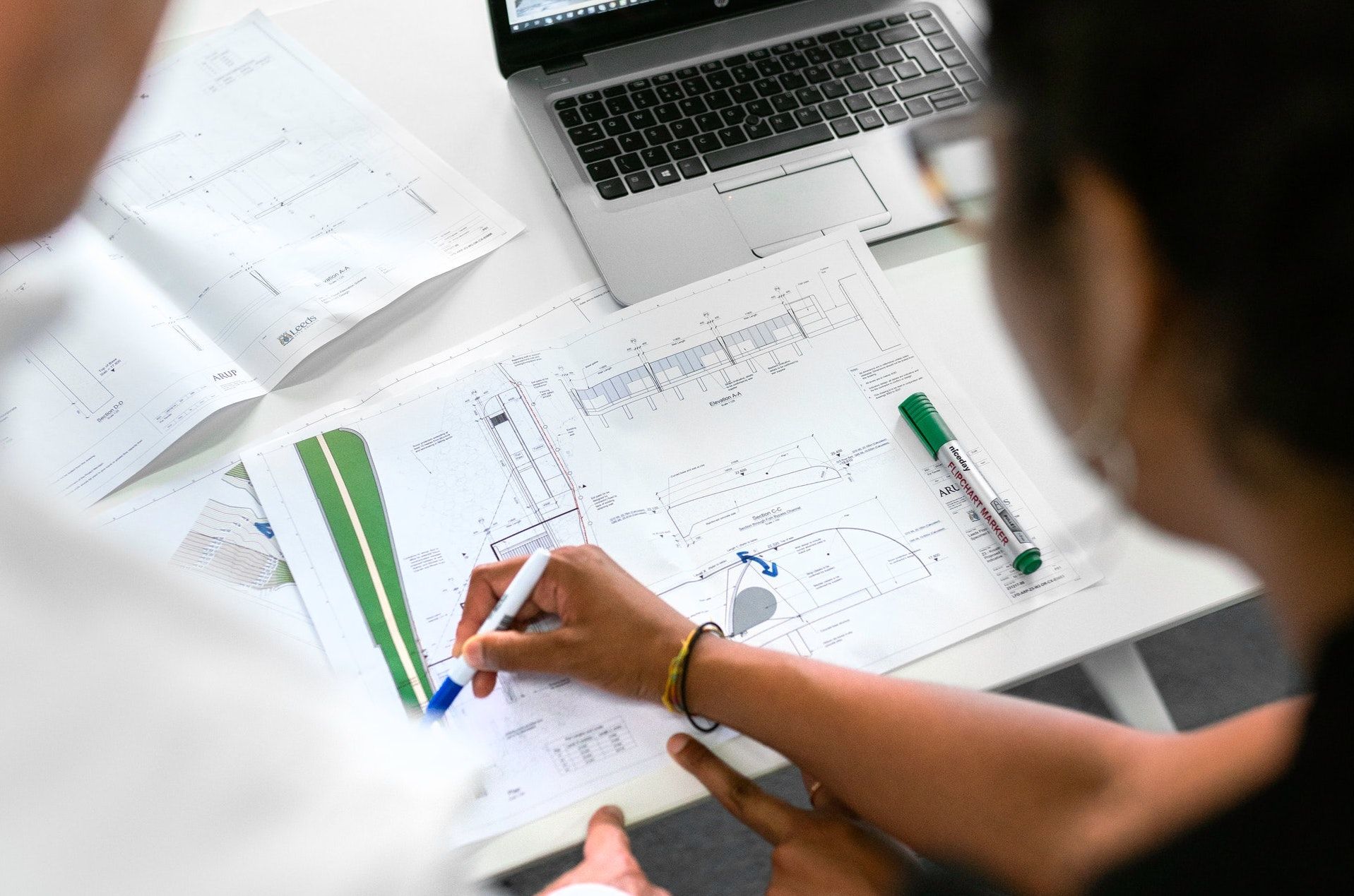

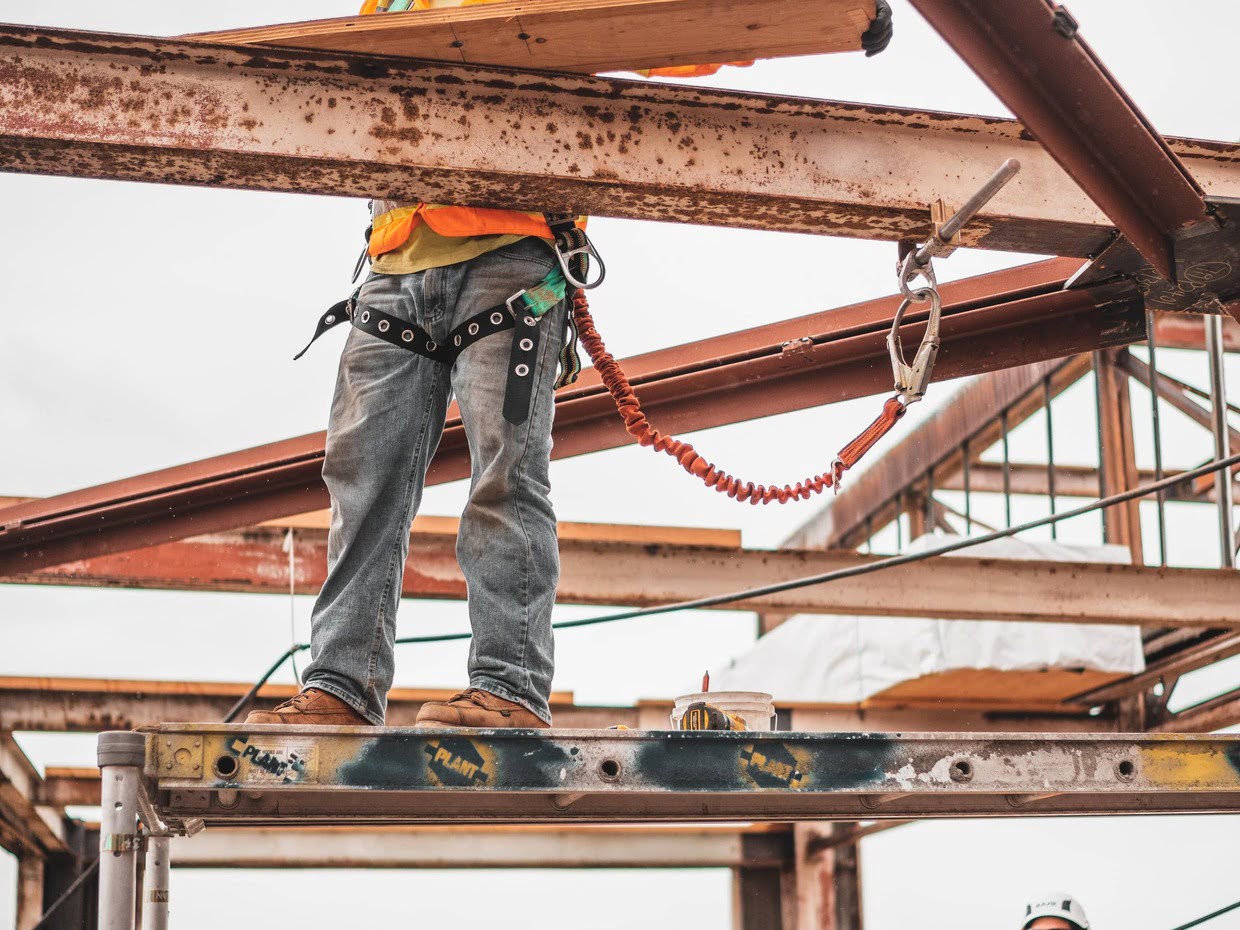
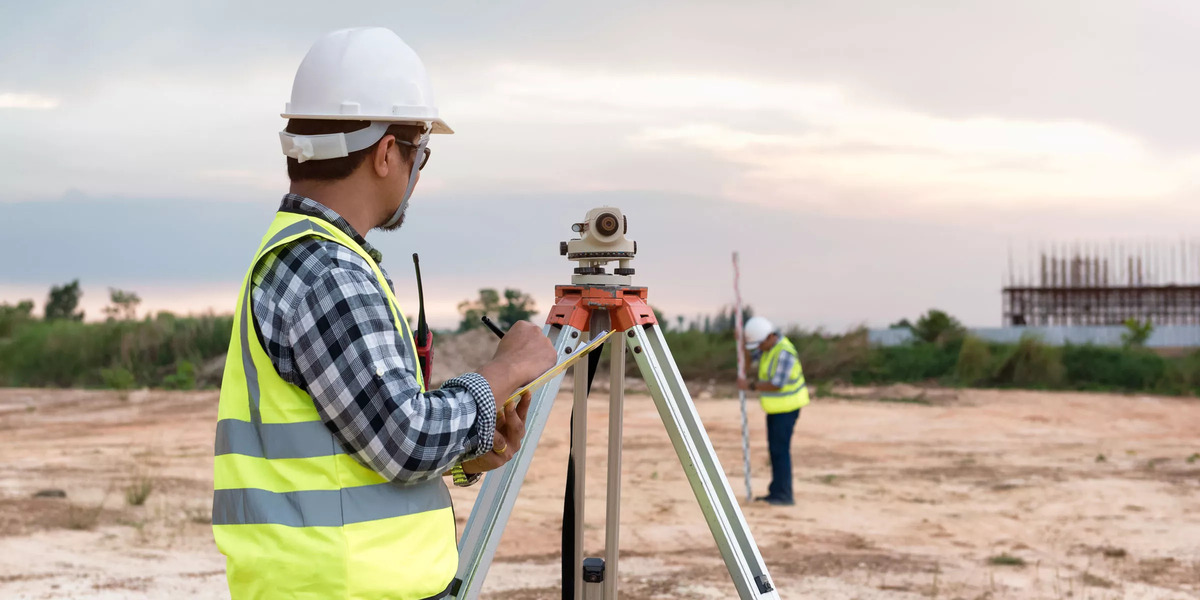
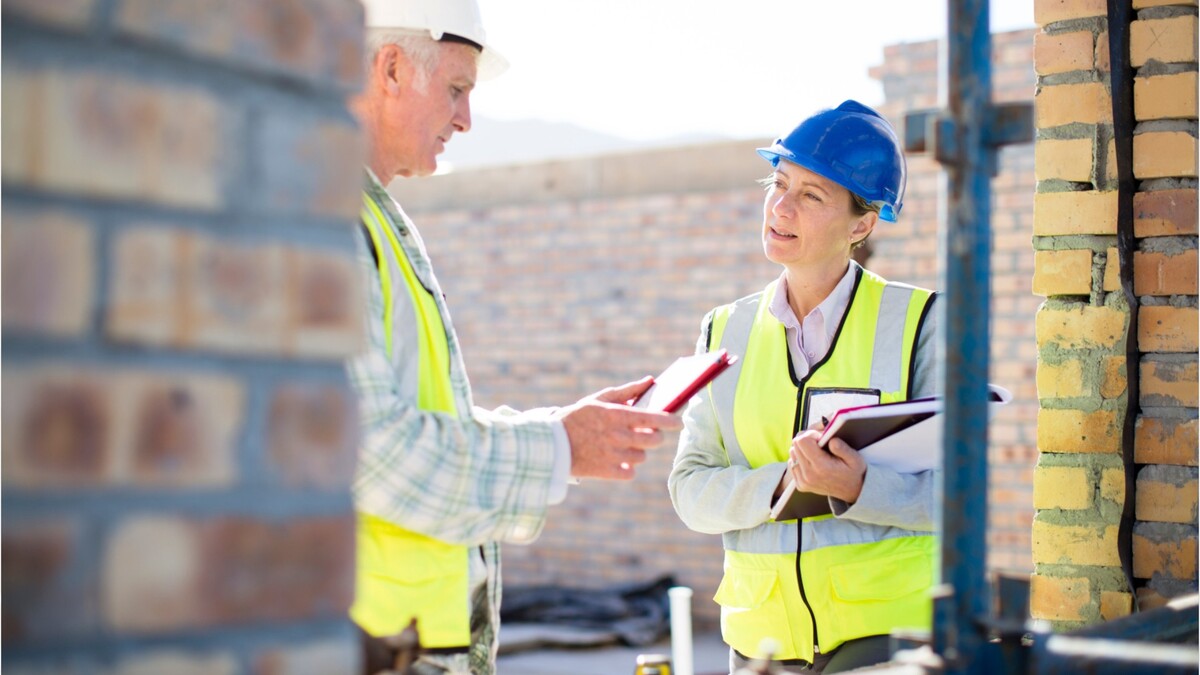
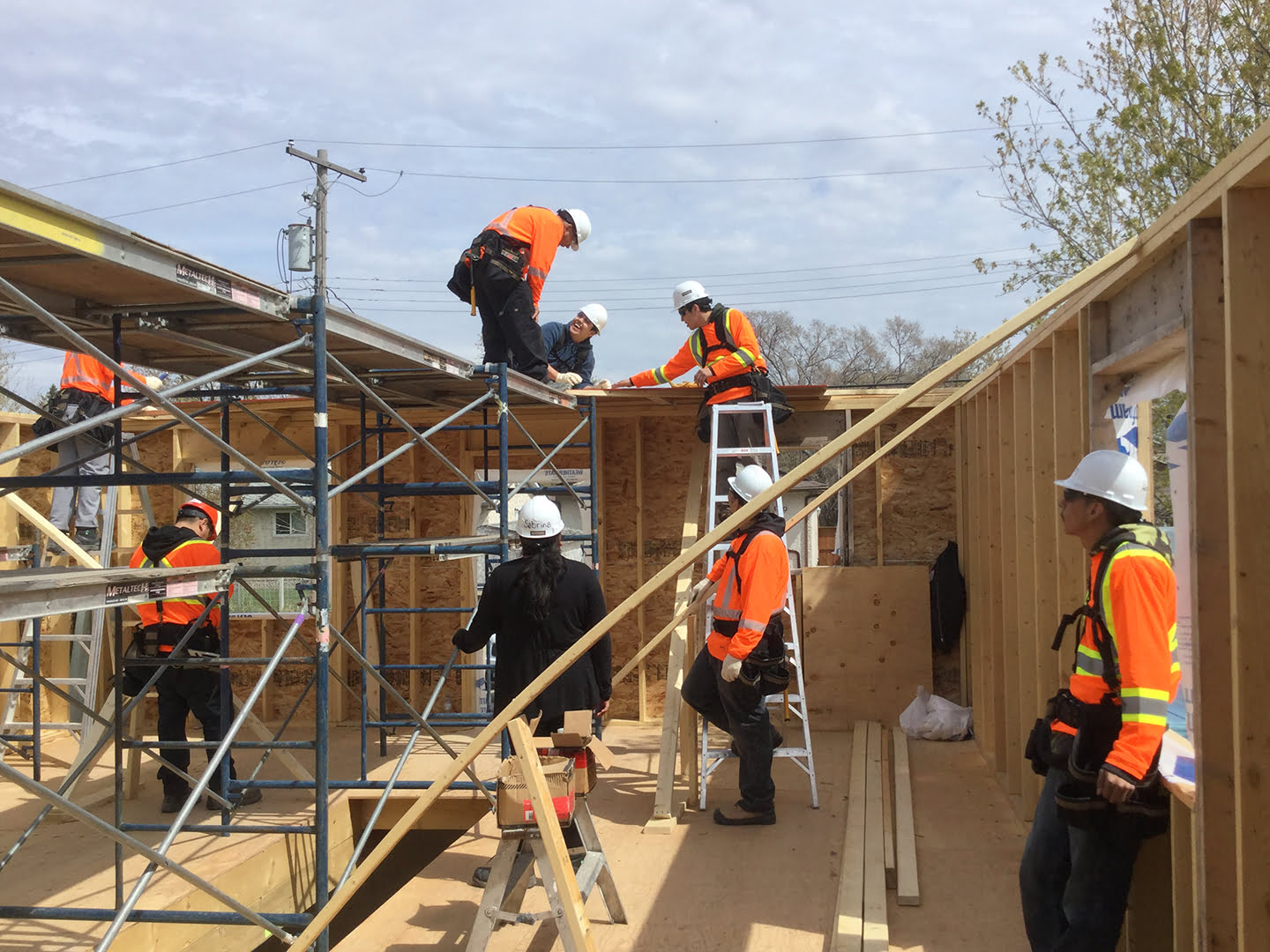
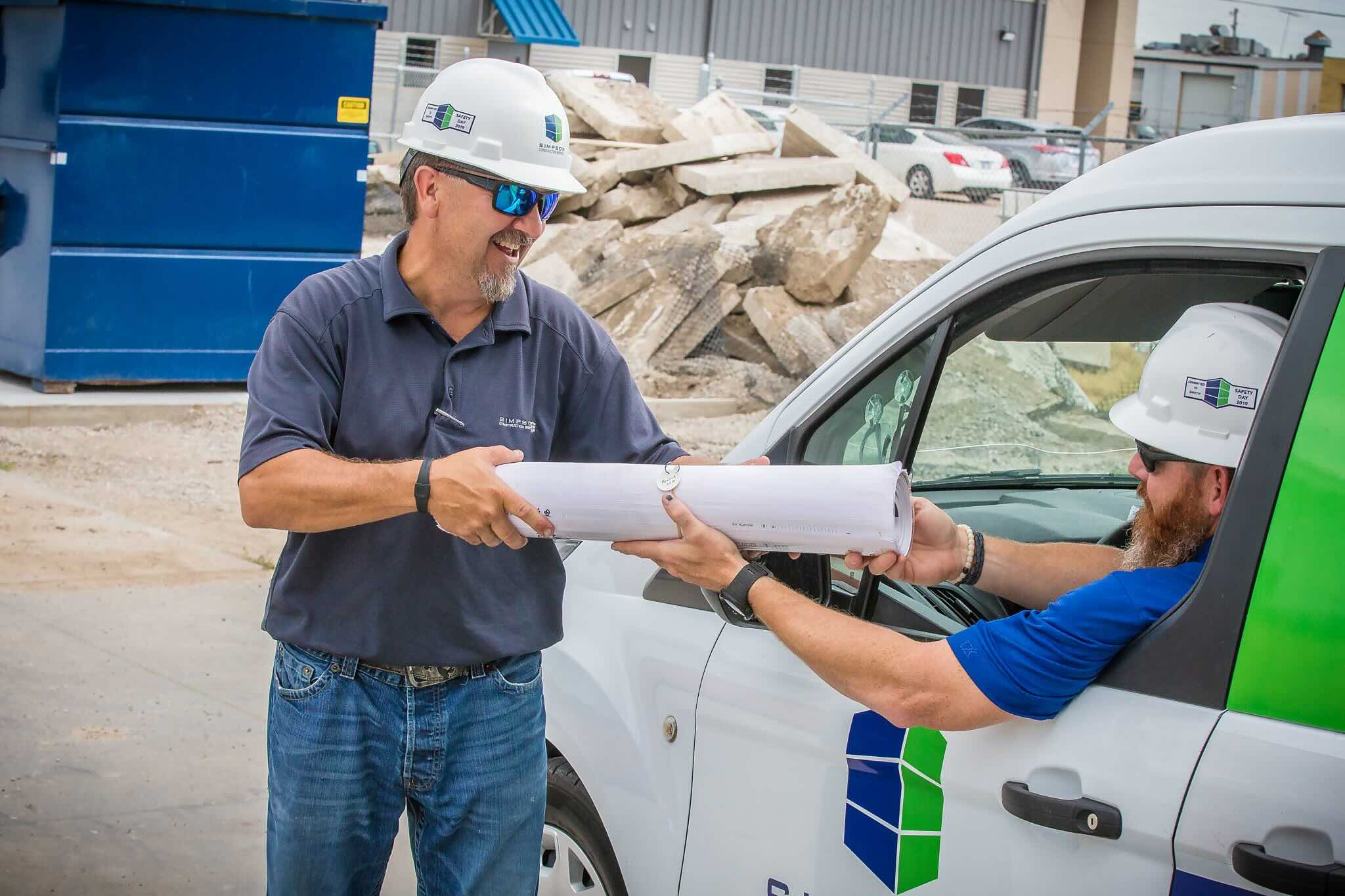

0 thoughts on “What Does A Director Of Construction Do”